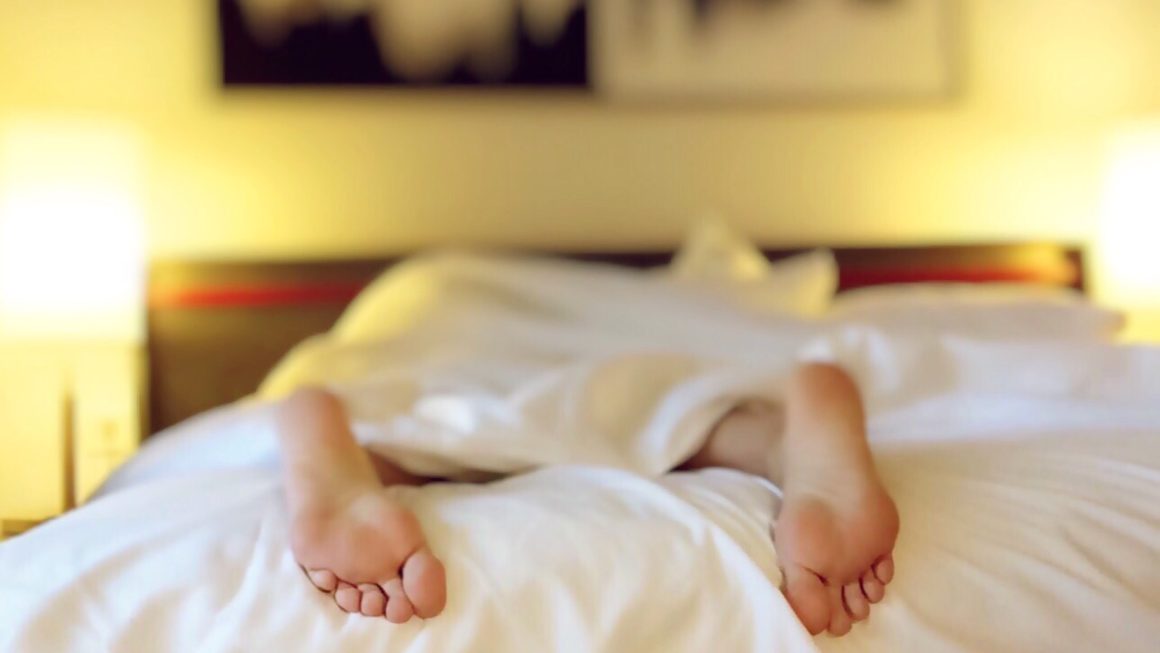Photo by Pixabay from Pexels
Getting an adequate amount of high quality sleep is one of the most important, yet underappreciated steps to improve one’s overall health and well-being. Studies have shown that sleeping between 7 and 9 hours per night can relieve stress, reduce the risk of many chronic diseases, including cardiovascular disease, diabetes, depression, sexual dysfunction and infertility, improve cognitive function and memory, help with weight loss, and reduce risk of automobile and workplace accidents. The lack of adequate sleep can actually undo many of the health benefits of a healthy diet and regular exercise routine. According to the Centers for Disease Control (CDC), only 35% of U.S. adults get at least 7 hours of sleep per day.
In a CDC study that looked at the sleep habits of children and adolescents, 73 percent of all children ages 6 to 12 got less than the recommended 9 hours per night and 73 percent of adolescents ages 13 to 18 got less than the 8 hours of recommended sleep per night. This lack of quality sleep in American youth is associated with poor academic performance, behavior and attention problems, impaired blood sugar regulation, childhood obesity, abuse of drugs and alcohol, car accidents, depression, and suicide.
The good news is a few small changes can make a big difference. Here are a few tips to improve you and your family’s sleep quality and quantity:
Create a routine – Establish a regular bedtime. Turn down the lights and sounds as the sun goes down, avoid disturbing TV shows and emotional conversations, take a warm bath or shower, read a book, write in a journal, do light stretching, or practice meditation, deep breathing, or prayer.
Go for comfort – Find a comfortable mattress, pillows and bedding as well as sleepwear that enhances your sleep quality. Use pillow props as needed for back, hip and neck issues. Consider an air purifier to remove dust and allergens.
Block the blue – Flat-screen electronic devices emit blue, full-spectrum light that mimics the sun and can fool the brain into thinking it’s daytime. This can suppress the body’s sleep-inducing hormone, melatonin, which interferes with the body’s natural internal clock. This may make it more difficult to fall asleep and reduce the amount of time the body spends in deeper, restorative sleep. Consider creating a tech-free sleeping space by turning off electronic devices at least one hour before going to bed and switching electronic devices to ‘night mode,’ which changes the colors of the display to the warmer end of the color spectrum after dark and can be scheduled to occur from sunset to sunrise.
Black it out – Use blackout curtains, cover or turn off any electronic lights, or use a sleep mask. If you must use a light at night, change the light bulb color to amber or red tones to avoid disruption of melatonin production.
Cool it down – Create a cool sleep environment between 60-67 degrees to promote deeper sleep.
Cover it up – Use a ‘white noise’ machine, fan, humidifier, ear plugs, or play soothing ‘sleep sounds’ to block outside noise.
Monitor your snoring – If you’ve been told you snore, have your partner listen to your breathing while you sleep to determine if there are any times when you have irregular breathing patterns. Consider trying a smart phone app (i.e. SnoreLab, Pillow, Sleep Recorder, Snore Control) that can monitor your breathing and snoring volume and give you an idea if you might have a sleep apnea, which is a serious condition that can have significant impacts on your overall health.
Get outside – Getting a few minutes of full spectrum sunlight, ideally during the middle of the day, can help set your circadian rhythm.
Drink wisely – Many people are significantly impacted by caffeine and alcohol consumed too close to bedtime. Caffeine may keep you from falling asleep. Alcohol may help you fall asleep more quickly, but disrupts your body’s ability to get into the deep, restorative sleep cycles. So, even if you do get 8 hours of sleep, it may still not be quality sleep. Consuming too many fluids later in the evening may also mean a couple of trips to the bathroom in the middle of the night.
Be a role model – Your children are watching you. Model healthy habits, including healthy sleep habits, and explain why these habits are important.
Sleep well!
Sources:
Sleepfoundation.org
CDC.gov/sleep
About the Author:
Jennifer Laity received her Master’s degree in Exercise Physiology and Gerontology Certificate from the University of Georgia and her undergraduate degree in Kinesiology from California State University, Hayward (now East Bay). She is an ACSM Registered Clinical Exercise Physiologist and a Wellcoaches Certified Health and Wellness Coach. Besides working for BaySport, Jennifer has worked as an exercise physiologist at Duke University’s Center for Living, and was a graduate assistant in the Cardiac Rehab and Adult Fitness program at the University of Georgia. In her 20+ years with BaySport, Jennifer has been providing wellness programming and coaching, fitness center and clinic management, personal training, group exercise class instruction, and clinical testing. In her free time she enjoys playing and watching almost any sport, serving with her church, and enjoying the great outdoors.




